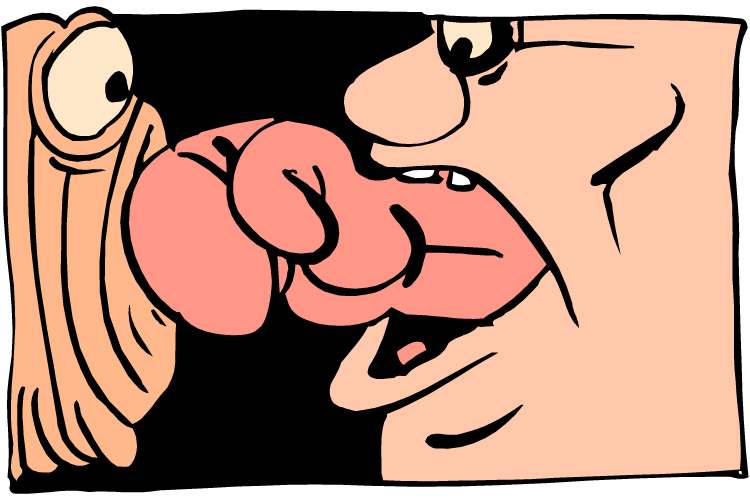Numbers 12:1–3, Miriam and Aaron spoke against Moses. This is slander! None of us are immune from this sinful proclivity of man’s fallen nature. Sadly, such activity is rife within our congregations! As long as we give in to gossip and slander we will grieve the Spirit of Elohim and will not advance spiritually. We’re all guilty of this. Confess your sin and repent now! What does YHVH say about those who sow seeds of discord among brethren? How does view it? (See Prov 6:16 and 16.) How did the apostles handle such individuals? (Note Rom 16:17; Tit 3:10; 2 Thess 3:6; 1 Tim 3:5.) What was the penalty that YHVH prescribed for Miriam because of the evil misuse of her mouth? (Read Num 12:14.) How does this penalty compare with that which Paul prescribes for those who cause division and strife with in the congregation? What does Paul teach about slandering or rebuking an elder in the congregation? (See 1 Tim 1:19.) What does he call such activity? (Read verse 20.)
Seven Ways to Misuse the Mouth
(From a book entitled Stop the Runaway Conversation by Dr. Michael Sedler)
The Backbiter: One who speaks against an absent individual. All criticisms and comments, as the name implies, are made without the accused being present or are behind his back. (Ps 15:2–3; Rom 1:30; Prov 25:23; 2 Cor 12:20)
The Busybody: One who seeks out information on a false report and spreads it by means of gossip, slander, backbiting, etc. YHVH takes this very seriously. In fact, he equates being a busybody with being an evildoer or even a murderer. (1 Pet 4:15; 1 Tim 5:13; 2 Thess 3:11)
The Complainer: One who finds fault. This type of person often uses a personal situation as a platform for his or her complaint. “I was treated unfairly.” “Do you know what this person did?” You think that’s bad, let me tell you what happened to me.” These are the types of phrases that will come from such a person. (Num 11:1; Jude 16)
The Murmurer: One who grumbles. We find that this person is usually complaining but only loudly enough for those in close proximity to hear. The murmuring person is seldom happy or pleased with the outcome of situations. Like the complainer, he looks for faults and then justifies a bad attitude with his comments. (Phil 2:14; Num 16:2; Jude 16)
The Slanderer: This is an individual who tries to injure someone’s reputation or character by false and defamatory statements. (Num 14:36; Jer 6:28; 9:4; 1 Tim 3:11; Prov 10:18; Ps 101:5)
The Talebearer (or Gossip): This is a person who elaborates and exaggerates so as to make a story more dramatic or “juicy”). (Prov 11:13; Lev 19:16; Rom 1:28–30; see also Prov 18:8; 20:19; 26:20,22; 1 Tim 5:13)
The Whisperer: This is an individual who talks about other people privately, secretly and covertly in order to hurt them. (Prov 16:28; Ps 41:7)



Natan
I have a question that maybe you have some insight into, maybe not. I have struggled with this and not found a satisfactory answer yet! Anybody else too, please provide your input!
When Aaron and Miriam “murmured against” Moses, why was only Miriam punished with leprosy (I think representing SIN) and put outside camp BUT NOT Aaron?
I think this has something to do with Aaron representing the office of High Priest. But no satisfying answer for me so far. Any assistance?
These are my thoughts on the matter from my personal Bible commentary:
Numbers 12:1, Miriam and Aaron spoke. This phrase indicates that Miriam, the older sister of both Moses and Aaron, initiated this complaint. According to Rashi, although Miriam was the eldest of the trio, Aaron was more eminent than in the Torah’s view and, therefore, should have been listed first. The fact that the Torah lists her ahead of Aaron indicates that she initiated the calumny against Moses and drew Aaron into it. This is probably why YHVH punished her and not Aaron.
Thanks!
We all learn and grow together. Many times, as in this case, I have to research the questions to obtain the answers.